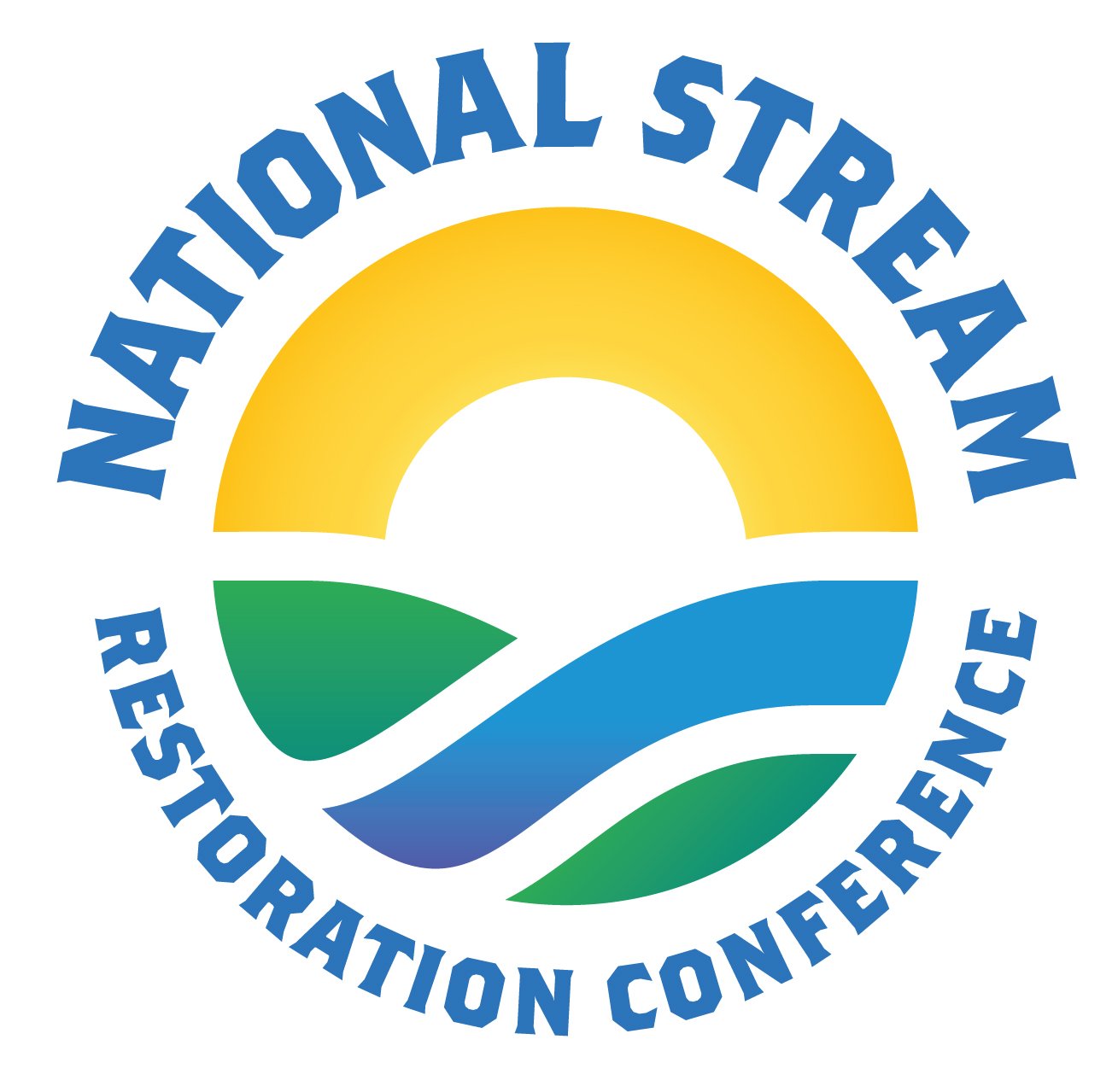Northeast, mid-Atlantic & eastern Canada
Regional Table
Location: Chambers 2 & 4
Moderators:
Adam Nabors, Environmental Quality Resources
Rich Starr, Ecosystem Planning & Restoration
Each panelist will present:
Representative agency/organization’s overall mission and jurisdiction/location
How stream restoration fits into the agency/organization’s past, present, and future
What constraints are influencing stream restoration in your area?
Any important drivers (positive or negative) that are likely to impact stream restoration’s future (e.g., opportunities, threats, funding sources, regulatory issues, technical issues, etc.)?
8:30 to 10:15 Presentations
Staci Pomeroy - River Scientist - Vermont Department of Conservation
Tom Ballestro PhD, PD, PG, PH, CGWP – Principal - Streamworks PLLC – Scarborough ME
Beth Styler Barry and Michelle Diblasio – Director of Freshwater Program and Freshwater Restoration Manager - The Nature Conservancy, Chester NJ
Ed Gazendam, PhD, PE – President - Water’s Edge Environmental Solutions Team, Cambridge Ontario
John Jackson PhD – Senior Research Scientist - Stroud Water Research Center, Avondale PA
10:15 to 10:30 – Break
10:30 to 11:05 – Presentations (continued)
Erik Michelson – Senior Environmental Policy Officer & DPW Deputy Director - Anne Arundel County Bureau of Watershed Protection and Restoration, Annapolis MD
Jake Reilly – Director – Chesapeake Bay Programs - National Fish And Wildlife Foundation
11:05 to 11:30 – Panel Discussion / Brainstorming
About Adam Nabors
With a background in heavy civil construction across the Colorado high country, Adam began his ecological restoration career in the Spring of 2009 working for a design / build firm in Paradise Valley, Montana. Desiring more experience in urban streams and stormwater management systems, he moved to Maryland joining EQR in December of 2012. Currently serving as a Project Manager, Adam has implemented stream restoration projects in Maryland, DC, Virginia, Delaware, Colorado, Montana, and Wyoming.
Rich Starr
Mr. Starr has over 30 years of experience in watershed and stream assessment, planning and restoration. Currently he is the Office Manager for the EPR Baltimore Office where he is responsible for managing all aspects associated with budgets, workload, staff performance, product quality assurance, and office growth and development. He has led comprehensive and critical studies for major watershed-based ecosystem restoration projects and water resources development projects. He has extensive experience in project planning including developing project goals and objectives, identifying significant issues and project effects, developing project plan alternatives, and leading plan formulation and selection. He has developed, designed, and monitored plans for wildlife and fisheries habitat enhancement projects, stream restoration projects, stormwater management, TMDL reduction projects, and floodplain management projects. He has conducted numerous geomorphic watershed and stream assessments; implemented stream restoration and fish passage projects; provided construction oversight, developed stream assessment protocols and tools; produced technical and planning documents; and developed training courses on functional-based stream assessment and restoration.
Prior to EPR, Mr. Starr worked for the U.S. Fish and Wildlife Service for 16 years. As Chief of the Habitat Restoration Division, Chesapeake Bay Field Office, his responsibilities included leading and managing the Stream Habitat Assessment and Restoration Team, Partners for Fish and Wildlife Program, and the Schoolyard Habitats Program. Before the U.S. Fish and Wildlife Service, Mr. Starr worked for the U.S. Army Corps of Engineers, Baltimore District for nine years where he led complex water resources development projects.
Staci Pomeroy
Staci Pomeroy is the lead river scientist for the Physical Science, Mapping and Restoration section of Vermont Agency of Natural Resources Department of Environmental Conservation (VT DEC) Rivers Program. Staci started with DEC through a University of Vermont (UVM) internship in 1995. While continuing her schooling, Staci worked part time in the Watershed Management Division’s Lay Monitoring Program, Biomonitoring and Aquatic Studies Program, and Rivers Program. She graduated from UVM in 1999 with a Batchelor of Science in Environmental Conservation. Staci became a River Scientist with the Vermont’s Rivers Program in 2000. Her work with the Rivers Program involves working with communities for flood resiliency efforts, collecting stream geomorphic assessment data, assisting watershed groups to do river restoration, facilitating long term protection efforts, and providing technical assitance to those looking to do work in and along VT’s rivers. It is the beauty of VT’s rivers, the range in the type of work and the mix of wonderful people she gets to work with that has kept Staci working on VT’s rivers all these years. When she is not out looking at other people’s rivers, she is playing on the river that crosses their land, camping in the woods, canoeing, or knitting on those days when she cannot be outside.
Tom Ballestro
Coming Soon
Beth Styler Barry
Beth Styler Barry, Director of Freshwater Programs at The Nature Conservancy in New Jersey has 20 years’ experience in river restoration, water quality monitoring, community outreach, and project management. At The Nature Conservancy, Beth leads development and implementation of major on-the-ground stream restoration projects, including dam removals, from permit application to working with engineers, contractors, and partners for successful project completion. Beth leads the NJ Statewide Dam Removal Partnership. Beth previously worked as executive director of the Musconetcong Watershed Association. She has a Bachelor’s Degree in Biochemistry from Rutgers University and a Master’s Degree in Environmental Management from Montclair State University.
Michelle Diblasio
Freshwater Restoration Manager. Michelle is the Freshwater Restoration Manager for The Nature Conservancy's New Jersey Chapter, where she works closely with upper management staff, regional partners, volunteers, and the community to conserve and restore the unique and biologically rich freshwater systems in Northwest New Jersey. Michelle joined the New Jersey Chapter in 2015 and helps to lead the on-the-ground field efforts, where she oversees the implementation of various freshwater conservation projects ranging from aquatic connectivity projects (i.e., dam removals) to floodplain restoration management, including planning and designing reforestation projects, to collecting, managing, and assessing water quality data for watershed-scale water quality monitoring. During her time with TNC, she has successfully restored over 130 acres of floodplain forest and led a tree planting initiative, where over 100,000 trees were planted throughout NJ's degraded floodplains. She developed a variety of field assessment protocols for a watershed monitoring plan and has led the Chapters 10-year Measure and Monitoring Program since 2016. In 2022, she removed the County Line Dam and is working on several other dam removals in the state. She received her Associates in Communications from Sussex County Community College and earned her Bachelor’s degree in Wildlife Science from the State University of New York-College of Environmental Science and Forestry.
Ed Gazendam
Ed Gazendam is the President and Sr. Geomorphologist of Water's Edge, a niche consulting firm offering applied fluvial geomorphological and natural channel design expertise to public and private clients since 2004. He has over 25 years of experience in restoring stream systems across Ontario. Ed earned his Bachelor’s, Master’s, and PhD from the University of Guelph in water resources engineering focusing on surfacewater hydrology & hydraulics, sediment transport, and stream processes. Ed is also a member of Ontario’s provincial Natural Channels Initiative Committee.
John Jackson
John Jackson is a stream ecologist and aquatic entomologist with 42 years of experience studying stream and river habitats that range from hot deserts and cold alpine mountains to wet tropical forests and hardened urban corridors. As a principal investigator at Stroud Water Research Center, he leads pioneering research into the effects of human activities on pollution-sensitive freshwater species like mayflies. His research team at the Stroud Water Research Center takes an empirical approach to understanding streams and has sampled aquatic macroinvertebrates from about 100 sites per year over the last 20 years. The restoration experiments his team is conducting now span 10 to 25 years in duration. His work is helping the Stroud Center to fulfill its mission to advance knowledge and stewardship of freshwater systems through global research, education, and watershed restoration. He holds a Ph.D. in entomology from the University of California, Berkeley, an M.S. in zoology from Arizona State University, and a B.S. in biology with honors from the University of Notre Dame. He also holds adjunct faculty positions at the University of Pennsylvania and University of Delaware and is currently a member of the Delaware River Basin Commission’s Water Quality Advisory Committee and the Pennsylvania Department of Environmental Protection’s Water Resources Advisory Committee.
https://www.linkedin.com/in/john-jackson-a78190b9/
Erik Michelson
Erik is a Deputy Director for Anne Arundel County’s Department of Public Works, heading its Bureau of Watershed Protection and Restoration. He works to facilitate the recovery of the Chesapeake Bay and its tributaries through supporting robust restoration projects and rigorous scientific monitoring efforts, bolstered by diverse stakeholder partnerships. Erik has an extensive background as a project manager for an environmental consultant then as the Executive Director for a non-profit, the Arundel Rivers Federation (formerly the South River Federation), and working for Anne Arundel County since 2014, as the County builds up the environmental assessments, restoration implementation, and ecological evaluation to support the County’s clean water obligations under the Municipal Separate Storm Sewer System (MS4) permit and the Chesapeake Bay Total Maximum Daily Load (TMDL). Erik also serves as Anne Arundel County’s Senior Environmental Policy Officer.
https://www.linkedin.com/in/erik-michelsen-93477a49/
Jake Reilly
Coming Soon








